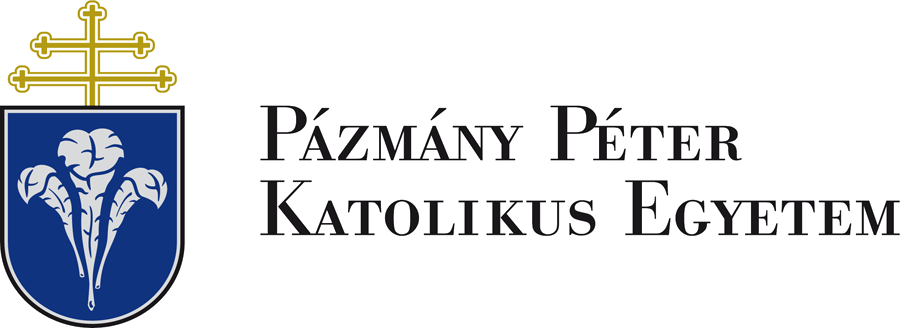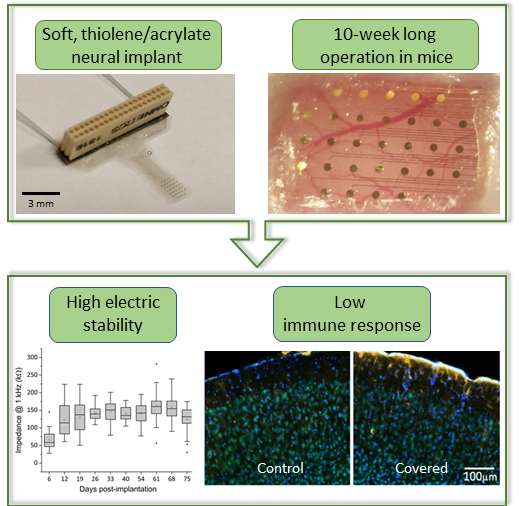
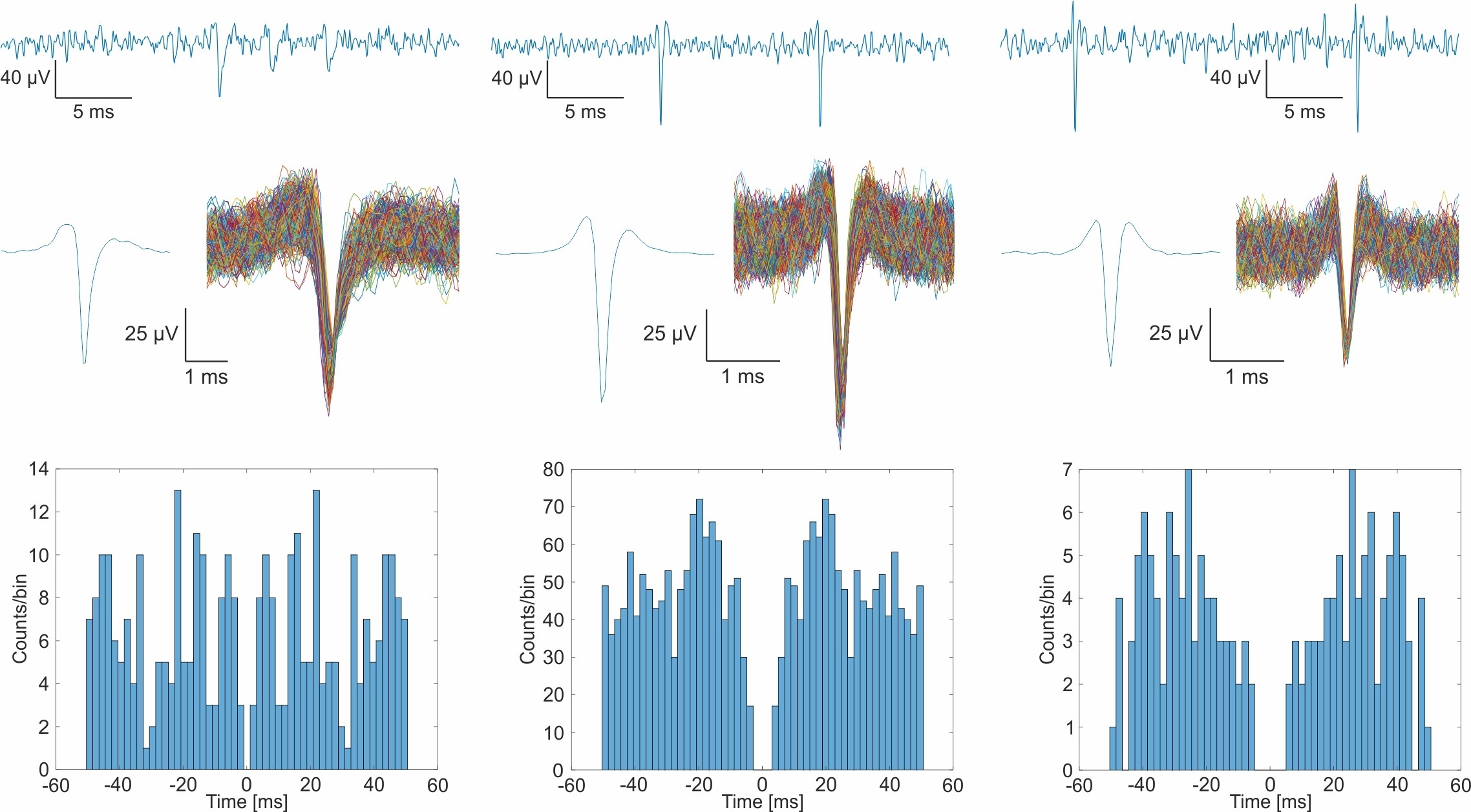
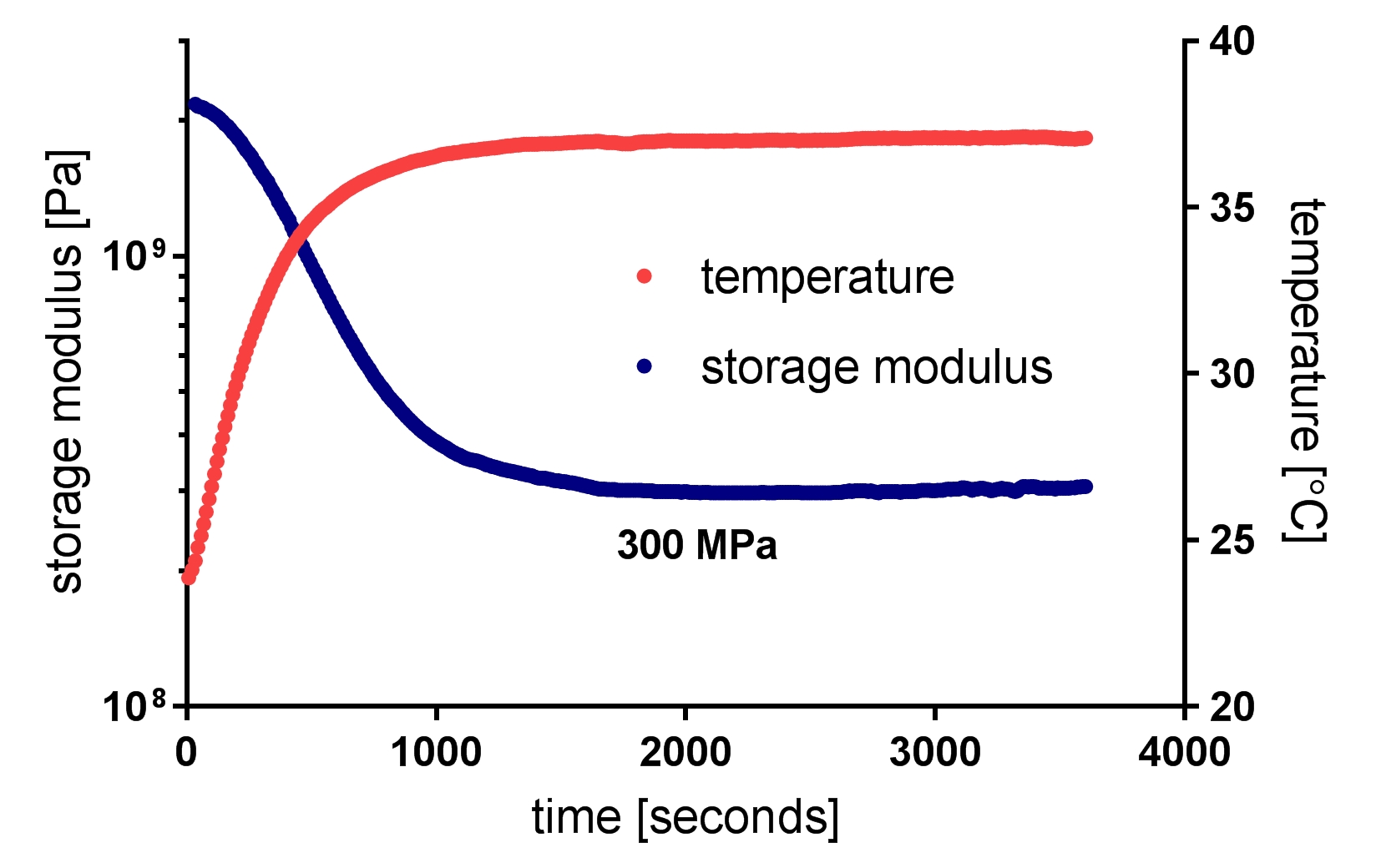
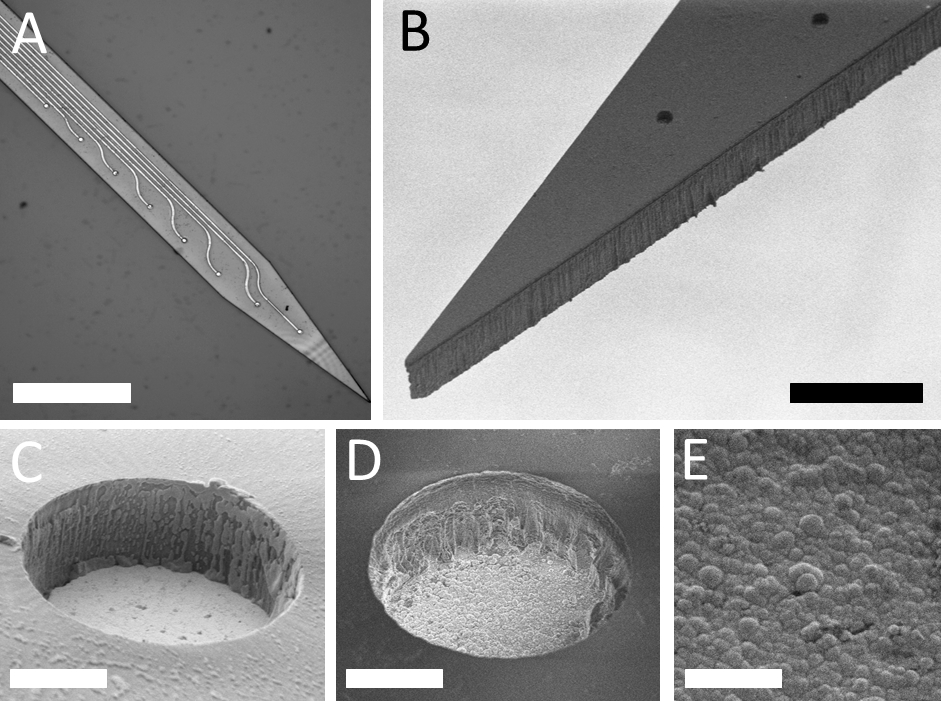
Softening neural implants that change their elastic modulus under physiological conditions are promising candidates to mitigate neuroinflammatory response due to the reduced mechanical mismatch between the artificial interface and the brain tissue. Intracortical neural probes have been used to demonstrate the viability of this material engineering approach. In our work, we present a robust technology of softening neural interfaces including laminar probes [Zatonyi, 2019] and microECoG devices [Fedor, 2021] and demonstrate their recording performance in rodent subjects in both acute and chronic conditions.
Publication:
F. Z. Fedor, M. Madarász, A. Zátonyi, Á. Szabó, T. Lőrincz, V. Danda, L. Spurgin, C. Manz, B. Rózsa, Z. Fekete, Soft, thiol-ene/acrylate based electrode array for long-term recording of intracranial EEG signals with improved biocompatibility in mice, ADVANCED MATERIALS TECHNOLOGIES (2021), DOI: 10.1002/admt.202100942
A Zátonyi, G. Orbán, R. Modi, G. Márton, D. Meszéna, I. Ulbert, A. Pongrácz, M. Ecker, W.E. Voit, A. Joshi-Imre, Z. Fekete, A softening laminar electrode for recording single unit activity from the rat hippocampus, Scientific Reports 9 (2019) 37237
